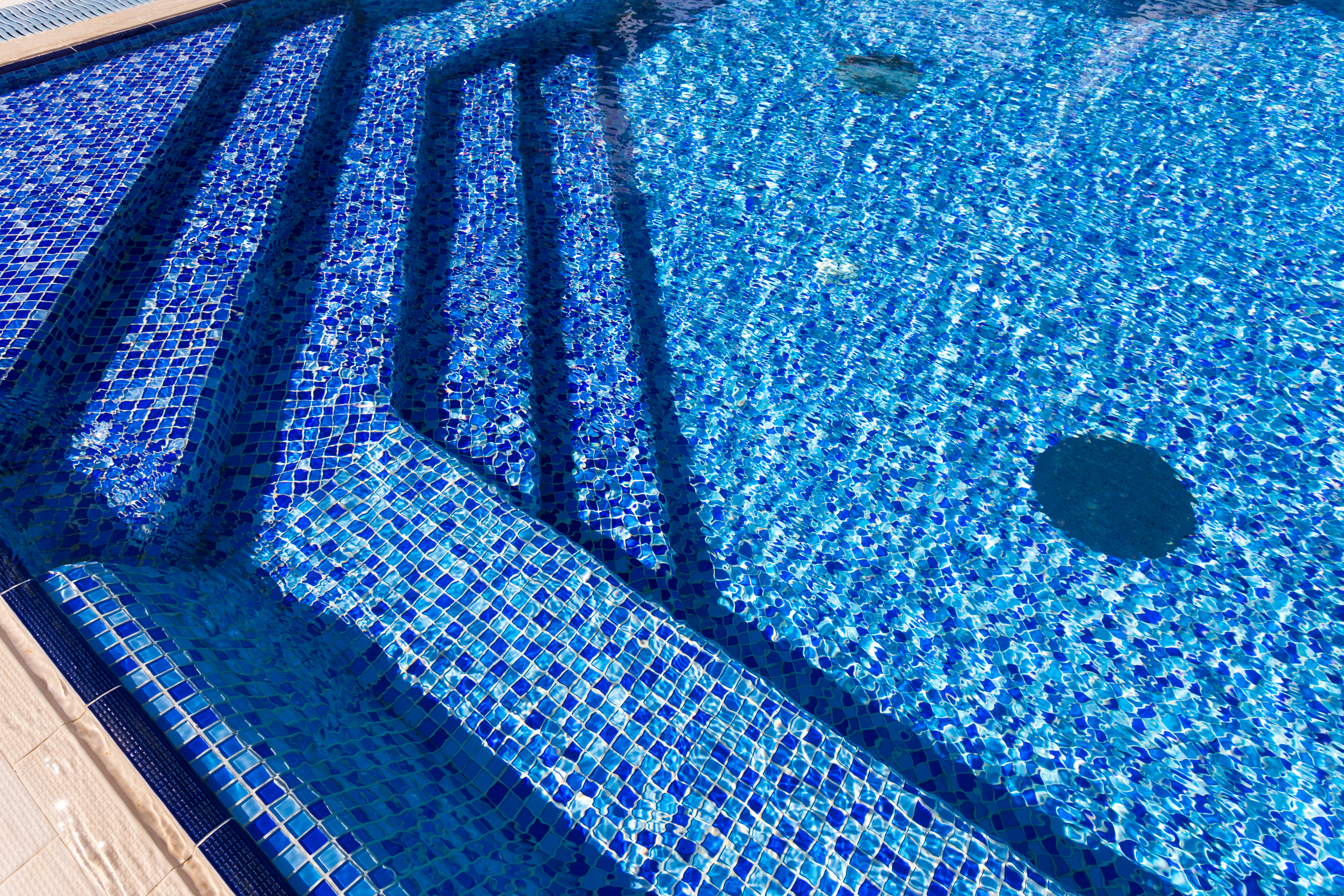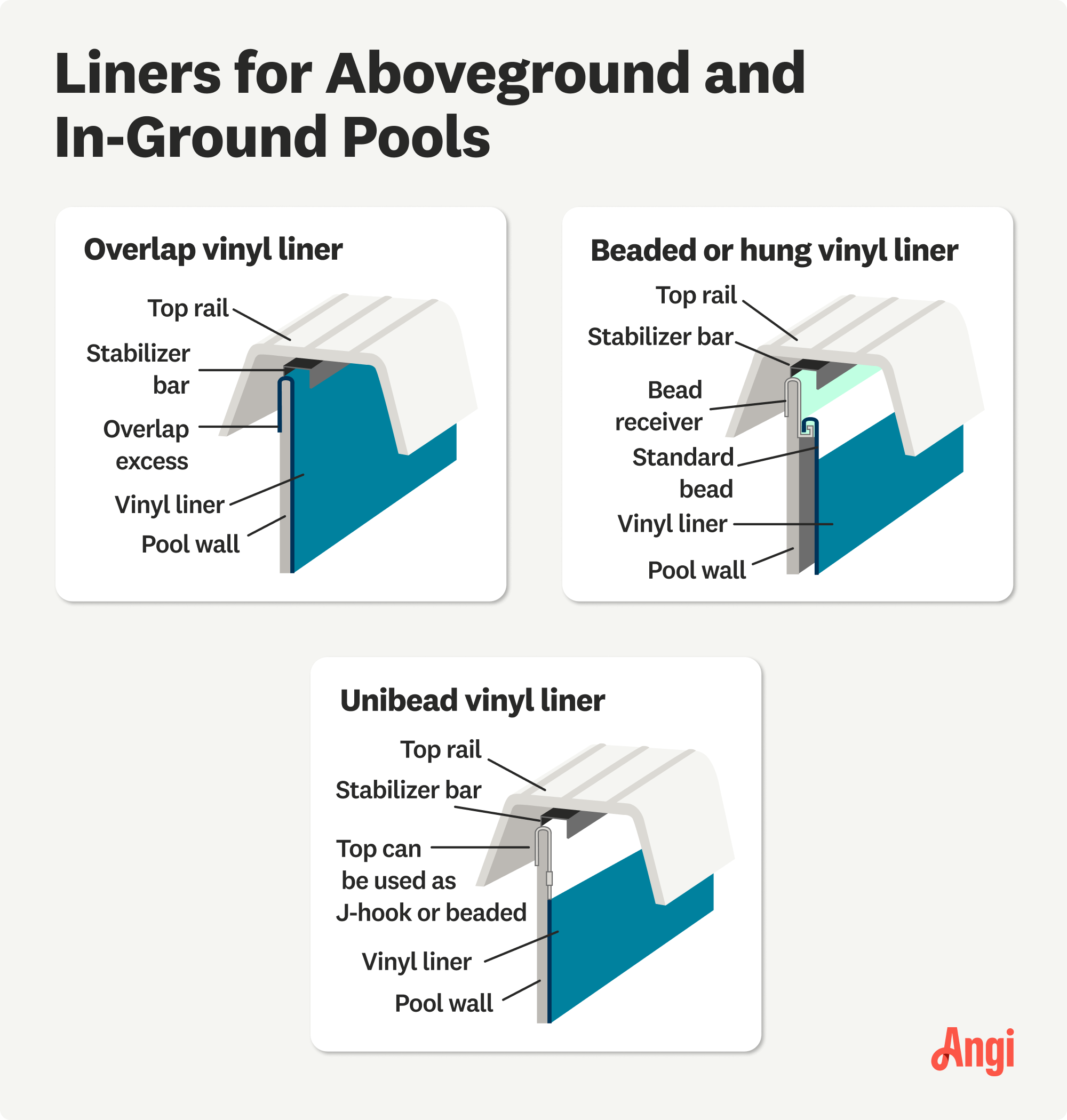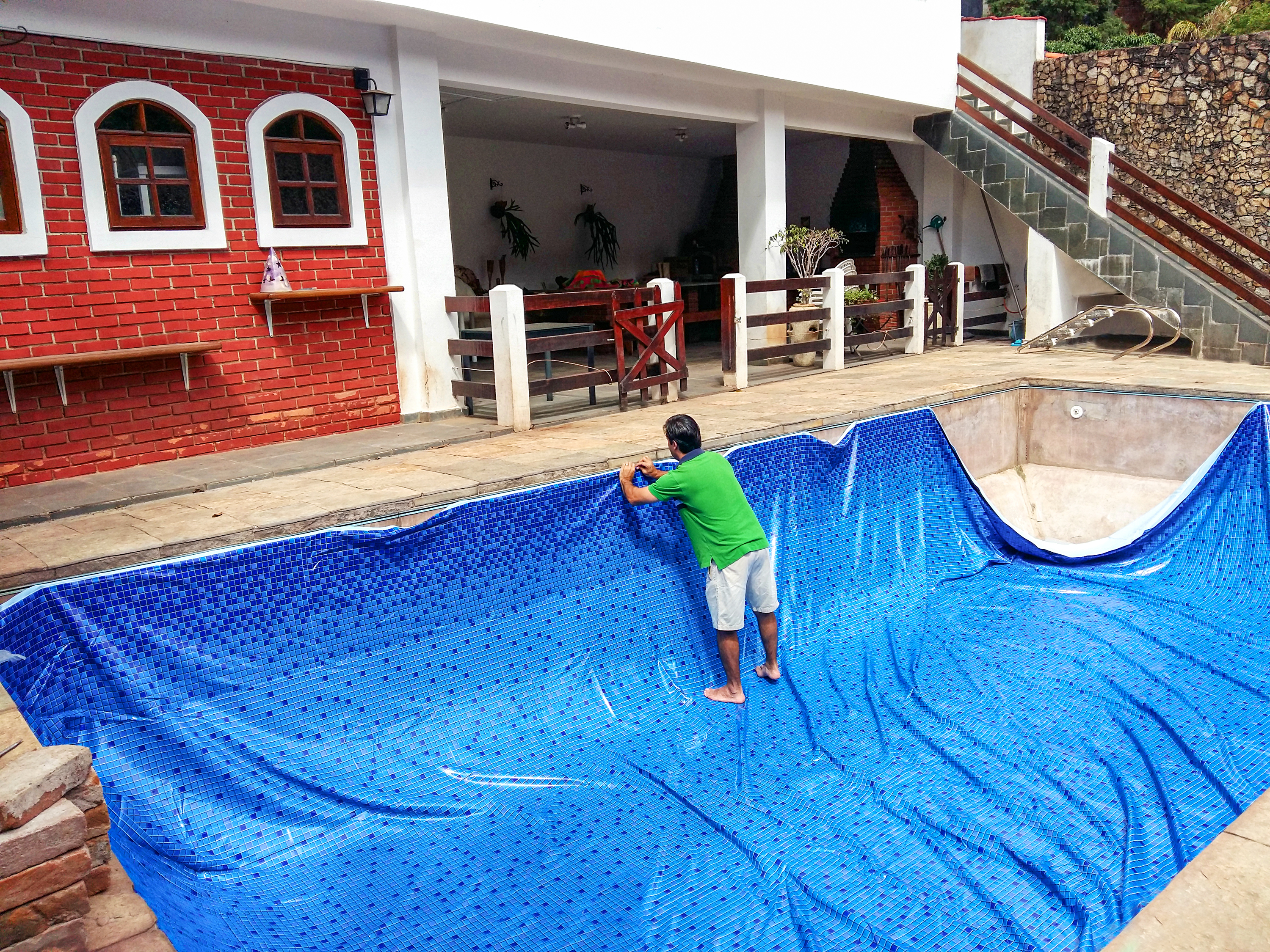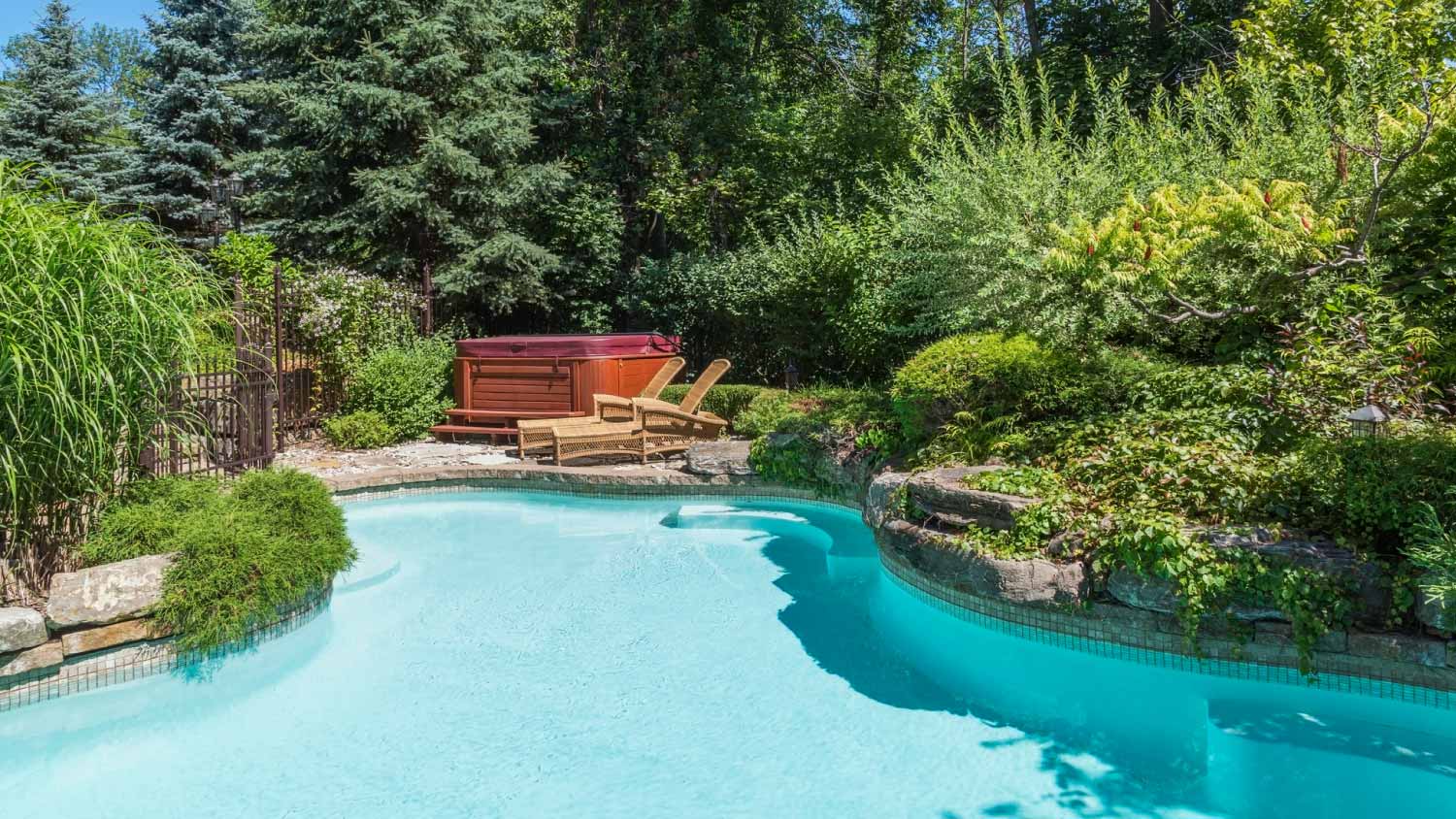
If you’ve been considering installing a new pool in the Buckeye State, this guide will help you understand inground pool costs in Columbus.
Pool liner replacement costs $2,870 on average in Boston, with a range of $1,470 to $4,392. Your pool size and liner type will dictate the actual costs of your project, so consult a pro for a quote.


Pool liner replacement in Boston costs more than the national average due to the cost of living and the limited pool season.
The best time for a pool liner replacement in Boston is between May to early June.
Homes with pools in Boston sell for less than homes without pools, so keep your pool in great shape to appeal to prospective buyers.
Pool liner installation is labor- and time-intensive, and should be left to the pros.
Replacing a pool liner in Boston costs $2,870 on average, with a potential range between $1,470 and $4,392. Your pool size, liner type, materials, and permit costs affect the total costs. Take care when scheduling your project, as Boston has a short summer season compared to other areas. The breakdown below will help you plan a budget for your pool liner replacement.
Your pool liner replacement costs largely depend on the pool size and liner material.
One of the easiest ways to estimate your liner replacement is to look at average costs based on the pool size. These sizes assume that your pool is a standard rectangle (custom or unique pool shapes will cost more).
| Pool Size (Feet) | Average Cost to Replace Liner |
|---|---|
| 6x8 | $240 |
| 8x12 | $480 |
| 8x20 | $800 |
| 10x8 | $400 |
| 12x20 | $1,200 |
| 16x32 | $2,560 |
| 18x36 | $3,240 |
| 20x40 | $4,000 |
While the pool size can help you estimate the cost, you also need to factor in the pool liner material. Vinyl is the most affordable material to replace, followed by fiberglass and tile. Your pool liner installer can recommend the best option for your setup.
| Pool Liner Material | Average Replacement Cost | Pros | Cons |
|---|---|---|---|
| Vinyl | $300–$4,000 | Affordable | Can tear |
| Customizable | Material degrades over time | ||
| Fiberglass | $1,000–$8,000 | Always rectangular | The largest size is 16x40 feet |
| Durable | More costly | ||
| Tile | $2,000–$70,000 | Aesthetically pleasing | Long installation time |
| UV and chemical-resistant | Not soft like vinyl liners |

The main types of vinyl liners include beaded, overlap, and uni-bead. Beaded liners are used for in-ground and aboveground pools and are attached to a track on the pool wall. For aboveground pools, you can use an overlap or uni-bead liner. The overlap liner is the most cost-effective, and the liner is simply clamped into place. The uni-bead liner has a J-hook, so you hook it over the pool wall’s edge, or you can cut the hook off and use it like a beaded liner.
| Liner Type | Average Cost |
|---|---|
| Overlap liner | $200–$600 |
| Uni-bead liner | $400–$900 |
| Beaded liner | $500–$1,000 |
Vinyl pool liners come in different thicknesses. The standard recommended liner is 20 mil, although you can get them in 28, 30, and 40 mils.
Thicker liners cost $300 to $500 more, but before you spring for them, consult with your installer. While thicker liners are potentially more durable and less likely to tear, they’re not always the better option. For example, thicker vinyl is harder to install in tight corners and angles, so it’s not ideal for custom pools. Moreover, thicker vinyl has a higher risk of wrinkling over time.

Once you know how size and materials impact your budget, there are additional factors to consider.
Labor costs for installing an aboveground pool liner range from $250 to $800, while an in-ground pool liner costs $1,000 to $2,500. Labor costs are likely higher if you schedule your installation during the peak season and have a larger pool, custom design, or diving pool.
This project is better left to the pros. They’ll help you drain the pool, remove the old liner, and install the new one without missing a beat. Your best bet is to hire a pool liner installer in Boston, Massachusetts.
The best time to install a new pool liner is when it’s dry and at least 70 degrees Fahrenheit. In Boston, this means the earliest you can install a liner is around May. If you’d like to wait until after the pool season, you have a window of time in September through October.
It’s never too early to call your local pool companies and ask for a quote. It’s possible to get a better price when booking ahead if you schedule the job during the off-season.
On the other hand, waiting too long could mean paying a premium for labor and materials during the busy season. If pool companies have a lot on their plate, they may schedule you for a slot that’s weeks away.
Your local Boston companies are likely to offer the best prices. Although there are companies with a home base outside of Boston to serve your area, they’re likely to charge more for travel. Moreover, Boston prices are near the national average, while places like New York City have pricing that’s much higher.
Boston requires a building permit when installing, modifying, or maintaining a pool. The permit can cost $150 to $300, but it depends on the pool type and the project’s scope.
Remember to add the 6.25% sales tax to your total costs when estimating the liner replacement.
A pool liner replacement doesn’t directly add value to your home, but it can contribute to your home’s overall selling price. A homeowner who regularly replaces their liner every 10 years or so is maintaining the pool well, which is a plus for any prospective homebuyer.
However, having a pool doesn’t necessarily give you a leg up in Boston. According to Redfin, Boston homes with pools sell for $9 per square foot less when compared to homes without pools. However, that’s no reason to neglect your pool, as a poorly maintained one can lower your home’s value.
Home is the most important place on earth, which is why Angi has helped more than 150 million homeowners transform their houses into homes they adore. To help homeowners with their next project, Angi provides readers with the most accurate cost data and upholds strict editorial standards. We survey real Angi customers about their project costs to develop the pricing data you see, so you can make the best decisions for you and your home. We pair this data with research from reputable sources, including the U.S. Bureau of Labor Statistics, academic journals, market studies, and interviews with industry experts—all to ensure our prices reflect real-world projects.
Want to help us improve our cost data? Send us a recent project quote to [email protected]. Quotes and personal information will not be shared publicly.
From average costs to expert advice, get all the answers you need to get your job done.

If you’ve been considering installing a new pool in the Buckeye State, this guide will help you understand inground pool costs in Columbus.

Considering a swimming pool for your backyard? Find out everything you need to know about in-ground pool costs, from materials to labor and more.

Thinking about switching from chlorine to salt water in your pool? Learn how much a saltwater pool conversion costs in this informational guide.

How much shock does my pool need? Here's how to calculate how much pool shock to add to your pool based on its overall water condition.

The key to maintaining an aboveground pool is using the right tools and chemicals for the job. Use this guide to learn how to clean an aboveground pool.

Swim from early spring through late fall and beyond by warming the water with a pool heater. Learn more about pool heater installation in this guide.